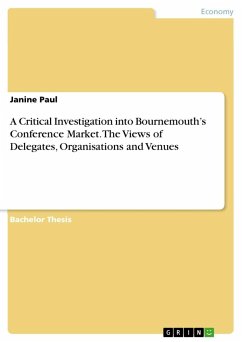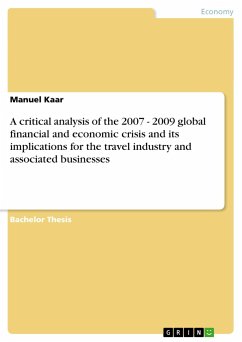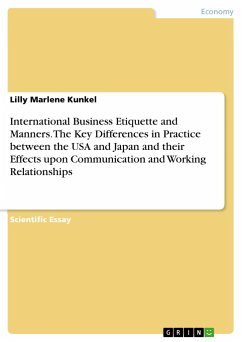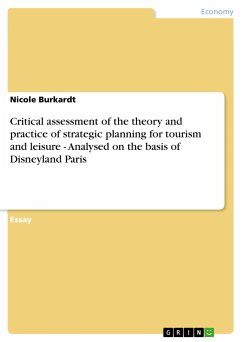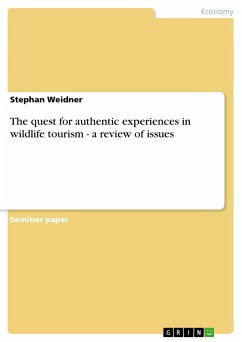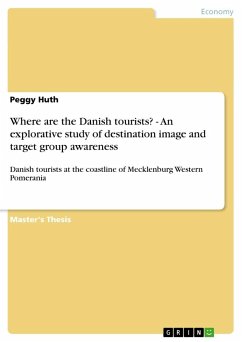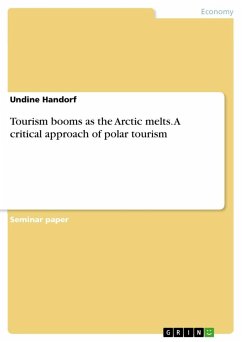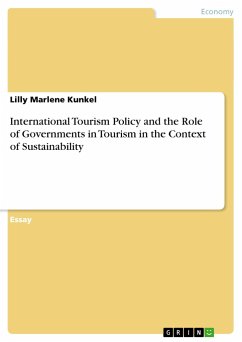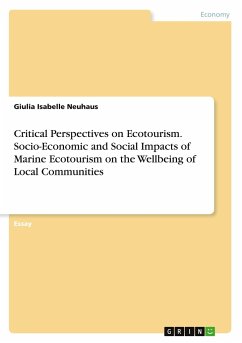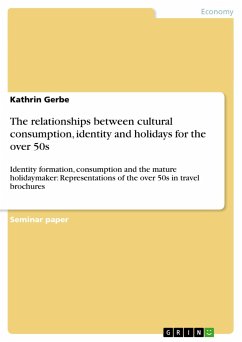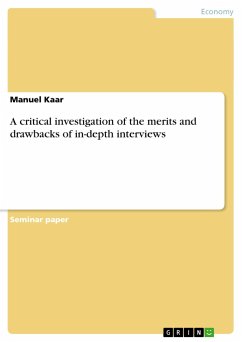
A critical investigation of the merits and drawbacks of in-depth interviews

PAYBACK Punkte
0 °P sammeln!
Seminar paper from the year 2007 in the subject Tourism - Miscellaneous, grade: 1,2, University of applied sciences, course: Tourism and Leisure Studies, language: English, abstract: When commencing to plan a study, researchers face the oftentimes challengingtask to decide on the adequate research method for their investigation problemat hand. Since the appropriateness of a study, as well as its ability to beaccepted as scientific research, depend very much on the correct choice of theapplied research method(s), the decision process for the latter constitutes acrucial phase of the overall rese...
Seminar paper from the year 2007 in the subject Tourism - Miscellaneous, grade: 1,2, University of applied sciences, course: Tourism and Leisure Studies, language: English, abstract: When commencing to plan a study, researchers face the oftentimes challengingtask to decide on the adequate research method for their investigation problemat hand. Since the appropriateness of a study, as well as its ability to beaccepted as scientific research, depend very much on the correct choice of theapplied research method(s), the decision process for the latter constitutes acrucial phase of the overall research operation.As many researchers encounter ambiguities when it comes to selecting thesuitable research technique, this paper provides a critical reflection on severalarguments for and against the employment of in-depth interviews, one of themost common tools used in qualitative research.The aim of this paper is, therefore, to consider the strengths and weaknesses ofin-depth interviews fromvarious angles, in order to advance the perspicuity ofthe question in which situations it is apt to use interviews as a research tool andwhen to better search for alternative methods.To arrive at this objective, four main issues have been explored through areview of already existing literature. First, the merits of individual in-depthinterviews are examined. Then the paper addresses the question of whatpossible drawbacks one may come across when selecting in-depth interviewingas a research method. Furthermore, a short comment on the application of indepthinterviews in qualitative tourism research is given. Finally, in theconclusions/recommendations section it is explained for which types ofinvestigations the in-depth interview is the appropriate research technique.As indicated above, the main focus of this paper is not on providing a guide forthe general set-up and implication process of an in-depth interview. The mainspotlight is rather on the enhancement of the detailed knowledge of researcherson in-depth interviews, with the ultimate goal to make a contribution to increasethe number of cases where research methods have been appropriately chosen.Hence, a certain level of previous knowledge about in-depth interviewing isexpected from the reader in order to be able to follow the content of this paper.




